Its specific physical and chemical characteristics make peat difficult to replace as raw material for horticultural substrates. Peat extraction affects a limited resource, however, and has a negative impact on climate and biodiversity. The challenge is to find ways to preserve peatland ecosystems while at the same time securing jobs and economic interests in horticulture and peat industry. The cultivation of Sphagnum peat moss is a promising alternative to the extraction of fossil peat in this respect.
To secure a permanent supply of fresh moss material as a raw material for the production of horticultural substrates, several cultivation techniques are currently being tested. The PROSUGA project focuses on moss cultivation on floatable vegetation carriers. Cultivation on floatable carriers has already been shown a viable option in a previous project. PROSUGA covers the whole range of the substrate production process, including propagation, cultivation and harvest of Sphagnum as well as the development, storage and industrial trials of moss-based substrates.
Seven partners participate in the joint project PROSUGA, including three research institutes and four commercial partners.
 EMAU
EMAU
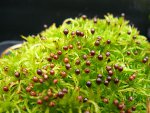 Ernst-Moritz-Arndt-University Greifswald develops new methods of sphagnum propagule production, dispersal and establishment.
Ernst-Moritz-Arndt-University Greifswald develops new methods of sphagnum propagule production, dispersal and establishment.
Internet: http://www.botanik.uni-greifswald.de/2534.html
contact person: Prof. Dr. Hans Joosten, phone: +49-(0)3834 864177
 mst
mst
 mst Dränbedarf GmbH in Twistringen develops floatable mats and moss carriers that can be processed as a substrate component. This innovative mat combination provides the basis for industrial Sphagnum production on water surfaces.
mst Dränbedarf GmbH in Twistringen develops floatable mats and moss carriers that can be processed as a substrate component. This innovative mat combination provides the basis for industrial Sphagnum production on water surfaces.
Internet: http://www.mst-engineering.net/
contact person: Dipl.-Ing. Joachim Meyer, phone: +49-(0)4243-9306-0
 NiRa
NiRa
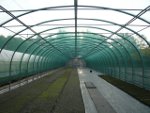 The Niedersächsische Rasenkulturen NIRA GmbH & Co.KG in Groß Ippener pre-cultivates peatmosses under shading and irrigation. The availability of a parent plant stock guarantees the timely provision of weedfree peatmosses.
The Niedersächsische Rasenkulturen NIRA GmbH & Co.KG in Groß Ippener pre-cultivates peatmosses under shading and irrigation. The availability of a parent plant stock guarantees the timely provision of weedfree peatmosses.
Internet: http://www.rasenkulturen.de/html/index_1.html
contact person: Dr. Christian Schade, phone: +49-(0)4224 92140
 IASP
IASP
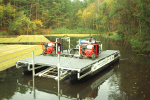 The Institute of Agricultural and Urban Ecological Projects affiliated to Berlin Humboldt University develops an innovative technology to harvest Sphagnum cultivated on water surfaces. Waste heat of a regional biogas co-generator can be used to dry the harvested peatmoss.
The Institute of Agricultural and Urban Ecological Projects affiliated to Berlin Humboldt University develops an innovative technology to harvest Sphagnum cultivated on water surfaces. Waste heat of a regional biogas co-generator can be used to dry the harvested peatmoss.
Internet: http://www.iasp.asp-berlin.de/iasp032.html
contact person: Dipl.-Ing. agr. Jan Häbler, phone: +49-(0)30-2093-6057
 HUB
HUB
 The Humboldt Universität zu Berlin implements large scale Sphagnum cultivation on artificial floating mats in an opencast mining rest lake in southeast Brandenburg and continuously optimizes the production process (establishment, cultivation, harvest). A second focus is on the development and testing of innovative Sphagnum substrate mixtures.
The Humboldt Universität zu Berlin implements large scale Sphagnum cultivation on artificial floating mats in an opencast mining rest lake in southeast Brandenburg and continuously optimizes the production process (establishment, cultivation, harvest). A second focus is on the development and testing of innovative Sphagnum substrate mixtures.
Internet: http://www.agrar.hu-berlin.de/fakultaet/departments/dntw/ubg/
contact person: M.Sc. Armin Blievernicht, phone: +49-(0)30-2093-46 431
 MoKuRa
MoKuRa
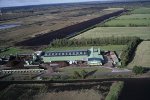 Moorkultur Ramsloh Werner Koch GmbH & Co. KG develops a new method of pre-treating Sphagnum-biomass and industrially producing various Sphagnum-based growing media. Furthermore optimization of substrate storage is investigated.
Moorkultur Ramsloh Werner Koch GmbH & Co. KG develops a new method of pre-treating Sphagnum-biomass and industrially producing various Sphagnum-based growing media. Furthermore optimization of substrate storage is investigated.
Internet: http://www.moorkultur-ramsloh.de
contact person: Gunnar Koch, phone: +49-(0)4498 641
 RoLa
RoLa
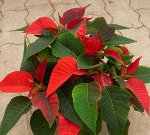 Rosengut Langerwisch GmbH & Co. KG in Michendorf tests the substrates in large-scale horticulture with respect to performance, water supply, fertilization, automized potting and marketing and tries to identify potentials for saving resources.
Rosengut Langerwisch GmbH & Co. KG in Michendorf tests the substrates in large-scale horticulture with respect to performance, water supply, fertilization, automized potting and marketing and tries to identify potentials for saving resources.
Internet: http://www.rosengut.de/
contact person: Dipl.-Ing. Gartenbau (FH) Kati Bräutigam, phone: +49-(0)33205 46644
Project management rests with the Institute for Agricultural and Urban Ecological Projects associated to the Humboldt University of Berlin (IASP).
 PROSUGA
PROSUGA
